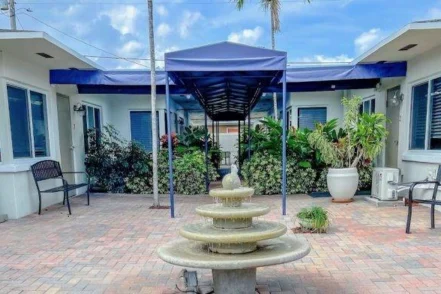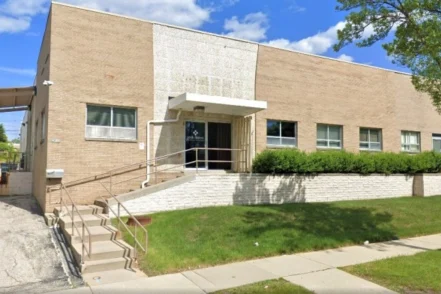Your Teen in Rehab: 5 Facts Every Parent Should Keep in Mind

Putting your teen in rehab may be one of the most difficult decisions you’ve had to make. Perhaps you didn’t want to face up to how serious their drug or alcohol problem had gotten. Maybe you’re worried about leaving them to fend for themselves in what must feel like a scary situation.
As a parent, your feelings of concern are valid. Your kid is hurting and you’ve made the right decision to get them expert help.
Adolescent drug and alcohol use is common and you are not alone in facing this issue. When you have a teen in rehab, there are a few things to keep in mind.
5 Facts to Keep in Mind
You may be wondering what happens next and how long your teen will be there. If they’ll be okay.
Here are some facts to keep in mind about the treatment process for your teen in rehab and what to do when they complete it.
Your Child Is Safe
The most important thing to know about having your teen in rehab is that they are safe. A facility will not let your teen in rehab leave without calling you for your consent. They will arrange for them to be picked up.
Second, your teen in rehab will be under supervision. Typically, they will share a room. And, depending on the type of treatment, there will be a nurse and healthcare staff on hand at the facility.
It’s More Common Than You Might Think.
Teen drug and alcohol use is common. The National Center for Drug Abuse Statistics show:
- 62 percent of 12th graders have admitted to abusing alcohol in the last year.
- 50 percent of teenagers have misused a drug at least once.
- 407,000 teenagers age 12 to 17 years old meet the criteria for alcohol use disorder.
- 788,000 teenagers age 12 to 17 years old meet the diagnosis of substance use disorder.
- 863,000 teens need treatment but do not all receive it. Remember, your kid is one of the fortunate ones.
What Happens at Rehab?
Treatment centers are very structured in their programming. A teen in rehab can expect to have daily group therapy, medical check ups, behavioral assessments, and individual therapy. They may attend a 12-step meeting, and will likely complete written exercises.
Treatment centers are very structured in their programming. You can expect to have daily group therapy, medical check ups, behavioral assessments, and individual therapy.
Outside of this structure, there will be time for exercise, supervised social time, and time to eat freshly prepared meals.
How Long Is My Teen in Rehab?
Treatment varies depending on the severity of the addiction and whether detox is required. Typically, a treatment facility will recommend 30-, 60-, or 90-day treatment options. The detox process usually only takes a few days and a minimum rehab stay is 30 days.
Bear in mind that they will want to have enough time to be able to work with your teen to establish an acceptance around them having a problem. Making behavioral changes necessary to sustain recovery. Every treatment center will encourage their patient to have an extensive relapse prevention plan.
Typically, a treatment facility will recommend 30-, 60-, or 90-day treatment options. The detox process usually only takes a few days and a minimum rehab stay is 30 days.
This plan ensures that your teen is aware of triggers and what to do in those situations to avoid relapse.
What Are the Benefits of Rehab?
There are a whole host of benefits to rehab, not least giving you and your teen a break and a fresh perspective. Teens may feel more likely to open up away from the gaze of parents. Parents may have the opportunity to take a breath. To seek some healing from dealing with their kid’s addiction.
Each teen rehab program will want to work with the family to ensure the family is part of the recovery process.
Additionally, each teen rehab program will want to work with the family to ensure the family is part of the recovery process. That might involve attending group therapy sessions as a family. You may also learn how to create healthy boundaries to support your teen upon their completion of treatment.
Aftercare Programs
When your child has completed rehab, the facility may recommend that the teen attends some kind of aftercare program. That might mean outpatient treatment or a sober living home.
Sober living homes are facilities that are managed by a house manager. They have many of the same structures as rehab, such as check ins, group sessions, and the requirement to attend meetings and appointments with medical providers.
Some sober living facilities may also require regular urine screening to ensure continued abstinence. Sober living is a great way to ensure a smooth transition back into the community. Participants learn to live with other sober people. Most importantly, they get to practice their recovery skills without a parent intervening.
Another option upon leaving rehab is to attend outpatient treatment. Your teen will attend the facility during the day, several times a week, and return home in the evening. A major benefit of outpatient facilities is that they keep much of the structure of rehab. These facilities also help the individual to reconnect with their community and make sober friends.
A major benefit of outpatient facilities is that they keep much of the structure of rehab. These facilities also help the individual to reconnect with their community and make sober friends.
Lastly, there has been recent developments in recovery high schools and collegiate recovery programs. These allow a teen in rehab to connect with other sober people and receive support during their education. You might want to consider checking out the Association of Recovery in Higher Education, or the Association of Recovery High Schools for more information.
Images Courtesy of Canva.
Articles About Alcohol & Treatment

A Guide to Veterans’ Drug Rehab & Addiction Treatment
A Guide to Veterans’ Drug Rehab & Addiction Treatment Addiction is no respecter of persons. It’s an enemy that can

How Your Environment Impacts Recovery
How Your Environment Impacts Recovery Learning how your environment impacts recovery is an important lesson to learn. In 2010, I

Do the Foods You Eat in Early Recovery Matter?
Do the Foods You Eat in Early Recovery Matter? You may hear folks in recovery with a bit of time
Top National Treatment Centers
-
 Florida
Florida1 Solution Detox – CLOSED
2901 Broadway Ave West Palm Beach, Florida 33407
Treatment Programs
- Alcohol Rehab
- Opioid Addiction
- Drug Rehab
- +0
-
 California
California10 Acre Ranch
5953 Grand Avenue Riverside, California 92504
Treatment Programs
- Alcohol Rehab
- Dual Diagnosis
- Opioid Addiction
- +4
-
 Wisconsin
Wisconsin10th Street Comprehensive Treatment Center
4800 South 10th Street Milwaukee, Wisconsin 53221
Treatment Programs
- Alcohol Rehab
- Opioid Addiction
- Drug Rehab
- +4
-
 Oklahoma
Oklahoma12 and 12
6333 East Skelly Drive Tulsa, Oklahoma 74135
Treatment Programs
- Alcohol Rehab
- Dual Diagnosis
- Opioid Addiction
- +4